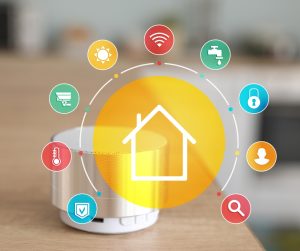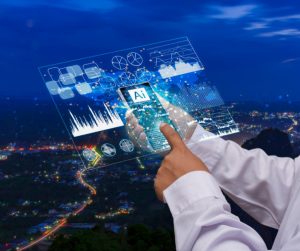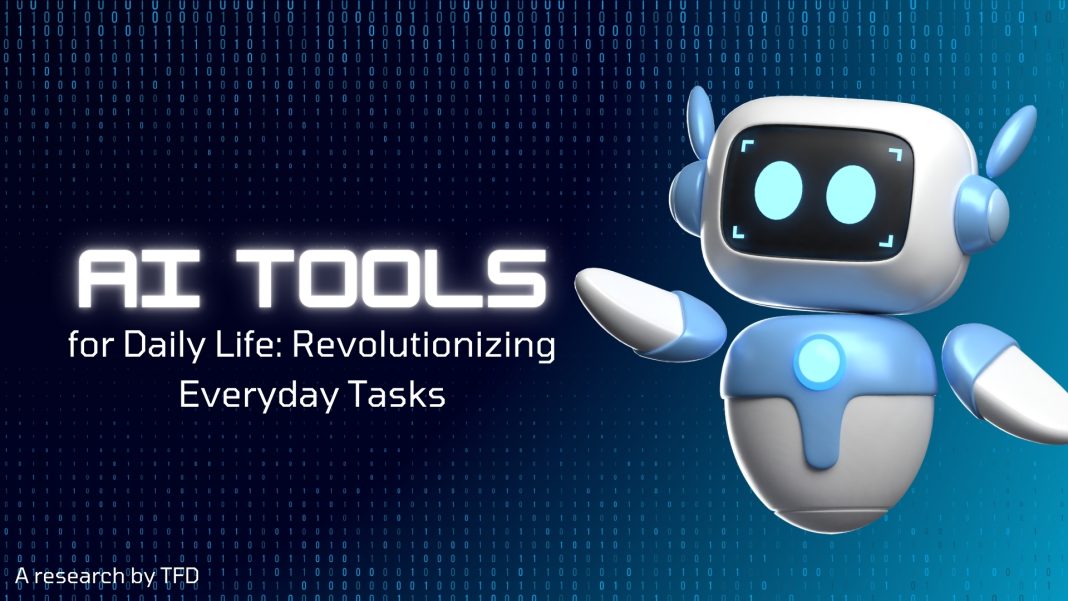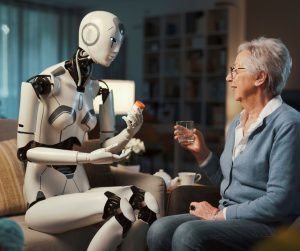The rapid advancement of artificial intelligence (AI) has significantly transformed our daily lives, seamlessly integrating into various aspects of our routine. From AI-driven personal assistants to smart home devices and healthcare applications, AI is making tasks more efficient, personalized, and convenient. This increasing integration of AI in everyday life is not only a technological evolution but also a shift towards a smarter, more connected world. In this article, we’ll explore the role of AI in daily life, highlighting its benefits, challenges, and the potential it holds for the future.
The Rise of AI in Daily Life
AI is no longer a concept confined to science fiction; it is a tangible reality that is reshaping how we live, work, and interact with the world. The integration of AI in daily tasks is evident in various forms, from virtual assistants like Siri and Alexa to smart home devices that control lighting, temperature, and security with a simple voice command. This shift towards AI-powered tools is driven by the desire for convenience, efficiency, and personalization.

AI-Driven Personal Assistants
One of the most prominent examples of AI in daily life is the use of AI-driven personal assistants. These virtual assistants have become an integral part of modern life, helping users manage schedules, answer questions, set reminders, and even control smart home devices. Assistants like Google Assistant, Siri, and Amazon Alexa are designed to understand natural language, making interactions feel more human-like and intuitive.
The appeal of AI-driven personal assistants lies in their ability to learn from user behavior and preferences, delivering a more personalized experience over time. For instance, these assistants can anticipate your needs by learning your routine, such as reminding you to leave for work based on traffic conditions or suggesting recipes based on your dietary preferences. The convenience and efficiency provided by these AI tools have made them indispensable in managing the complexities of modern life.

Smart Home Devices
The concept of a smart home, where devices communicate and operate autonomously, is another area where AI is making a significant impact. Smart home devices, powered by AI, are designed to simplify household tasks, enhance security, and create a more comfortable living environment. These devices range from smart thermostats and lighting systems to AI-powered security cameras and robotic vacuum cleaners.
One of the key benefits of AI in smart home devices is energy efficiency. For example, smart thermostats like Nest learn your temperature preferences and adjust accordingly, reducing energy consumption and lowering utility bills. AI-powered lighting systems can adapt to your schedule, turning lights on or off based on your presence, further contributing to energy savings. Additionally, AI-driven security systems provide real-time monitoring and alerts, enhancing the safety of your home.
The integration of AI in smart home devices is not just about convenience; it’s about creating a living space that is responsive, adaptive, and aligned with your lifestyle. As AI continues to evolve, we can expect even more sophisticated smart home solutions that anticipate our needs and enhance our quality of life.
AI in Healthcare
The healthcare industry is another area where AI is making significant strides, improving patient care, diagnostics, and treatment outcomes. AI-powered tools are being used to analyze medical data, predict disease outbreaks, and assist in complex surgeries. The integration of AI in healthcare is revolutionizing the way medical professionals diagnose and treat patients, leading to more accurate and timely interventions.
One of the most promising applications of AI in healthcare is in diagnostics. AI algorithms can analyze medical images, such as X-rays and MRIs, with a level of accuracy that rivals human experts. This capability allows for early detection of diseases like cancer, where early intervention can significantly improve patient outcomes. Additionally, AI-driven tools are being used to develop personalized treatment plans based on a patient’s genetic makeup, lifestyle, and medical history.
AI is also playing a crucial role in managing chronic conditions. For example, AI-powered wearables can monitor vital signs and provide real-time feedback to patients and healthcare providers. This continuous monitoring enables early detection of potential issues and allows for timely intervention, improving the overall management of chronic diseases.
The integration of AI in healthcare is not without challenges, such as concerns about data privacy and the need for robust regulatory frameworks. However, the potential benefits of AI in improving patient care and outcomes are undeniable. As AI technology continues to advance, it is likely to become an even more integral part of healthcare, driving innovation and improving the quality of care.

The Future of AI-Powered Tools
The increasing integration of AI in daily life is just the beginning. As AI technology continues to evolve, we can expect even more innovative applications that will further enhance our daily lives. From AI-powered education tools that personalize learning experiences to AI-driven transportation systems that optimize traffic flow, the possibilities are endless.
One of the key trends to watch is the development of AI-powered gadgets that are designed to be more intuitive and user-friendly. These gadgets will not only perform tasks more efficiently but will also be able to anticipate our needs, making our lives even more convenient. For instance, AI-powered refrigerators may be able to suggest recipes based on the ingredients available or automatically order groceries when supplies run low.
Another area of potential growth is in AI-driven software and courses that help users develop their skills and knowledge. As AI becomes more prevalent in the workplace, there will be an increasing demand for tools and resources that help individuals stay competitive in the job market. AI-powered learning platforms can provide personalized learning experiences, helping users acquire new skills and knowledge at their own pace.
Conclusion
The integration of AI in daily life is transforming the way we live, work, and interact with the world. From personal assistants and smart home devices to healthcare applications, AI is making tasks more efficient, personalized, and convenient. As AI technology continues to advance, the possibilities for its application in daily life are endless, offering new opportunities for innovation and improvement. Whether you’re a tech enthusiast, a professional, or an everyday user, the benefits of AI-powered tools are undeniable, making them an essential part of modern life.
Incorporating these AI-powered tools into your daily routine can lead to a more efficient and connected lifestyle. As we continue to embrace AI, it is crucial to stay informed about the latest developments and trends, ensuring that we can make the most of this transformative technology. The future of AI in daily life is bright, and its impact will continue to grow, shaping the way we live and work for years to come.
To Keep Updated Visit & Follow our Facebook Page Or Our Website




